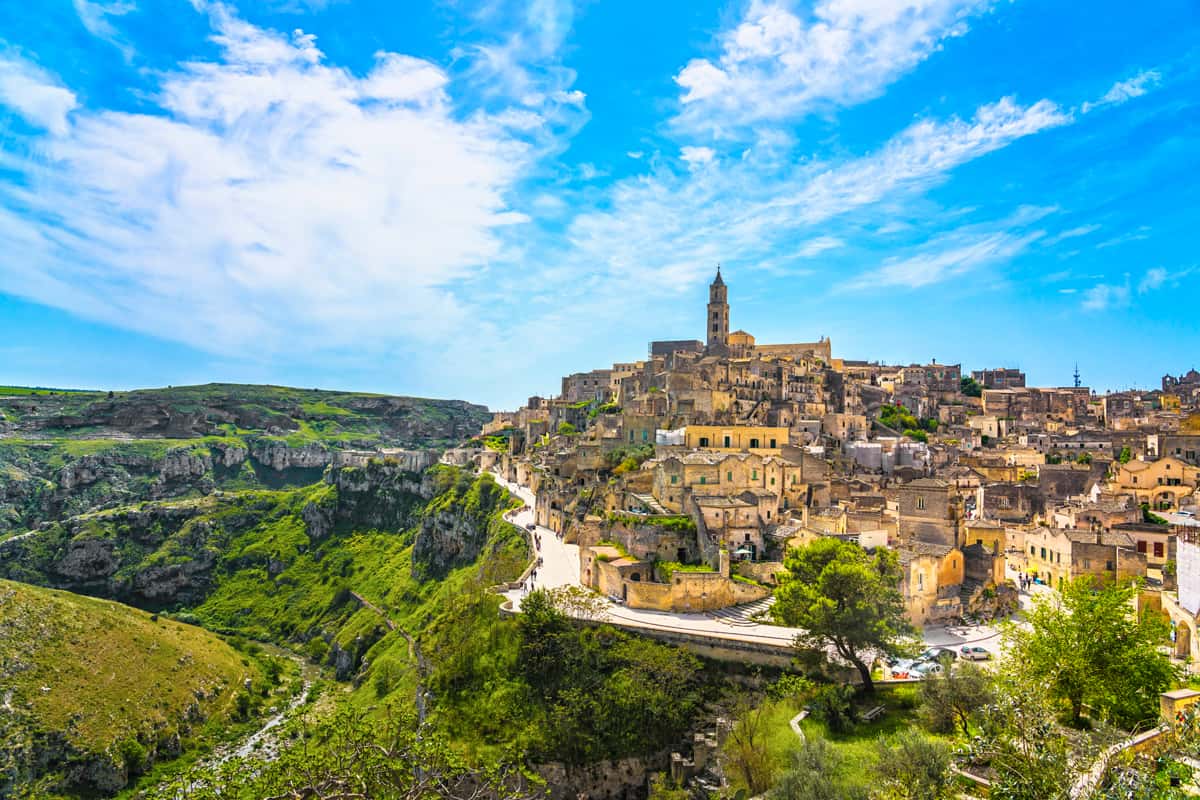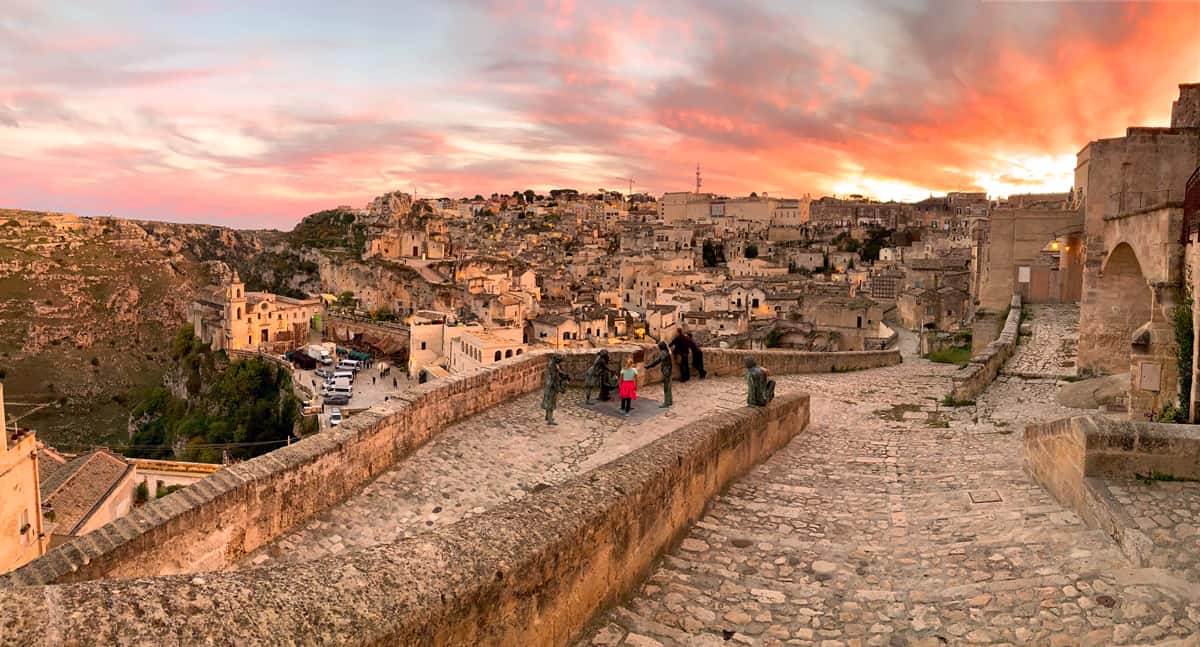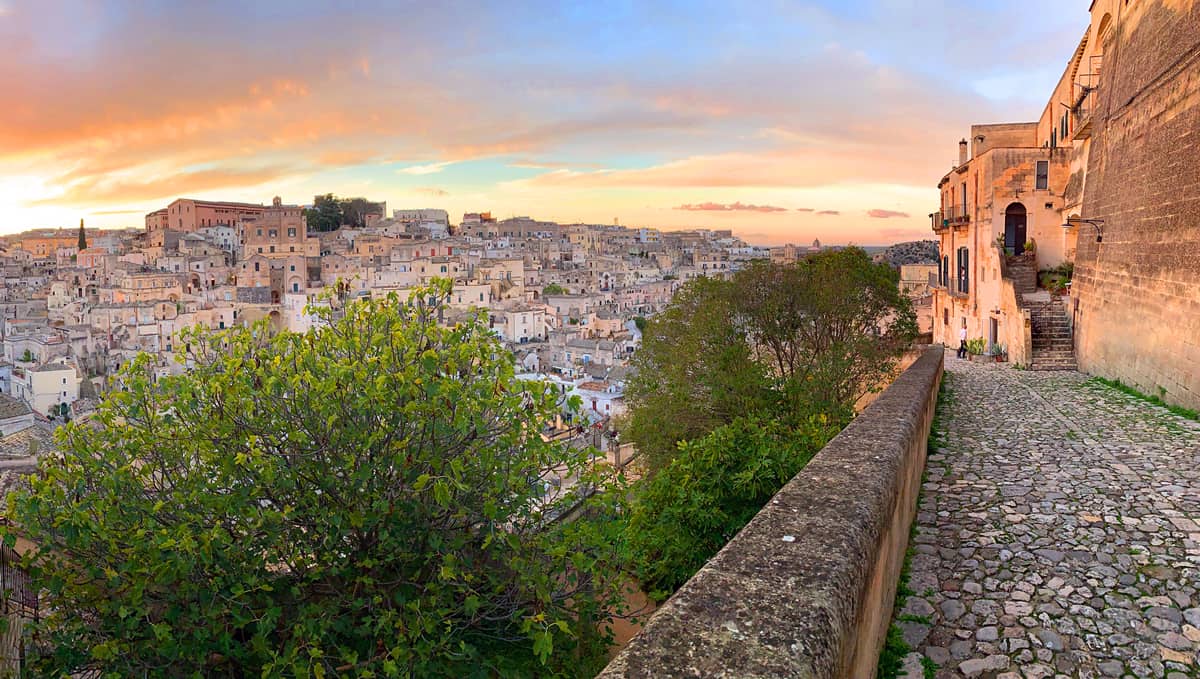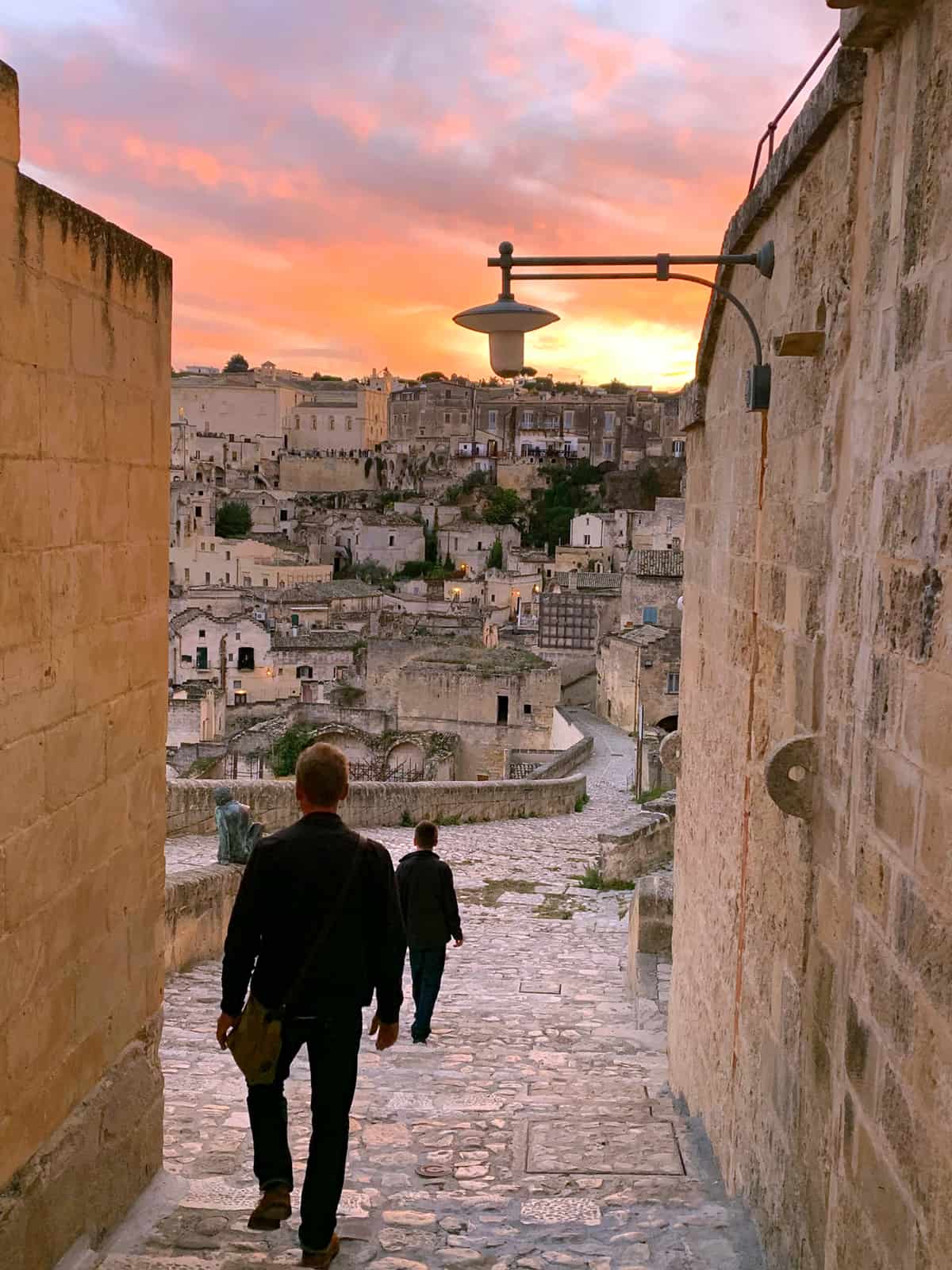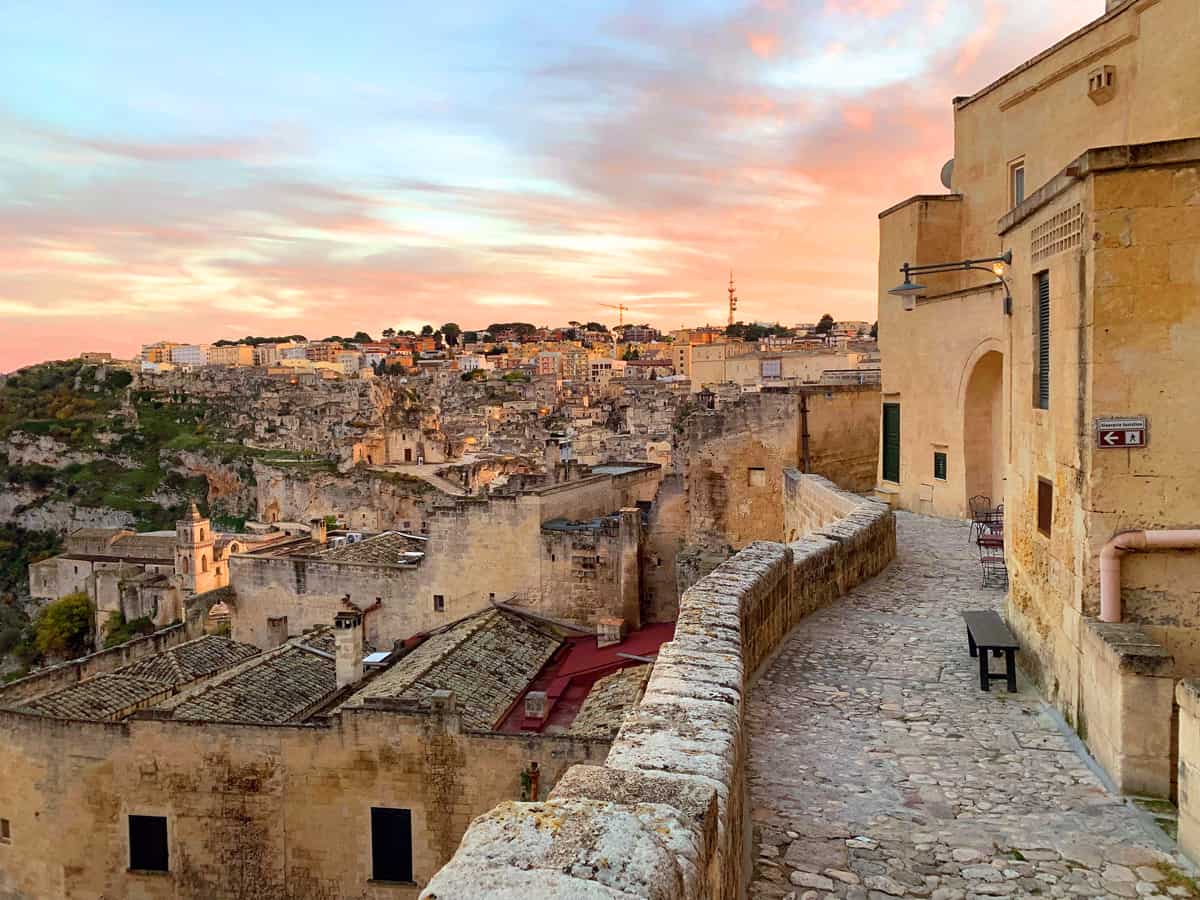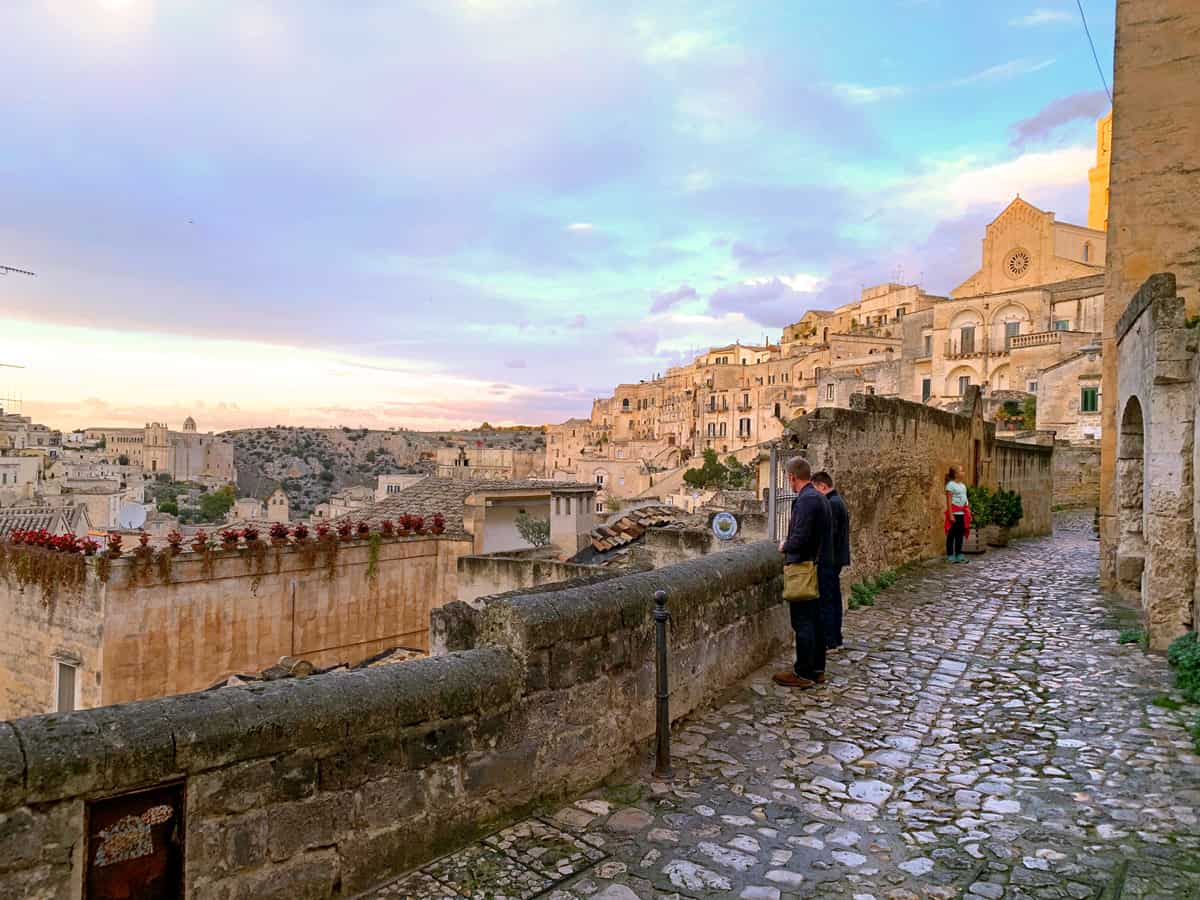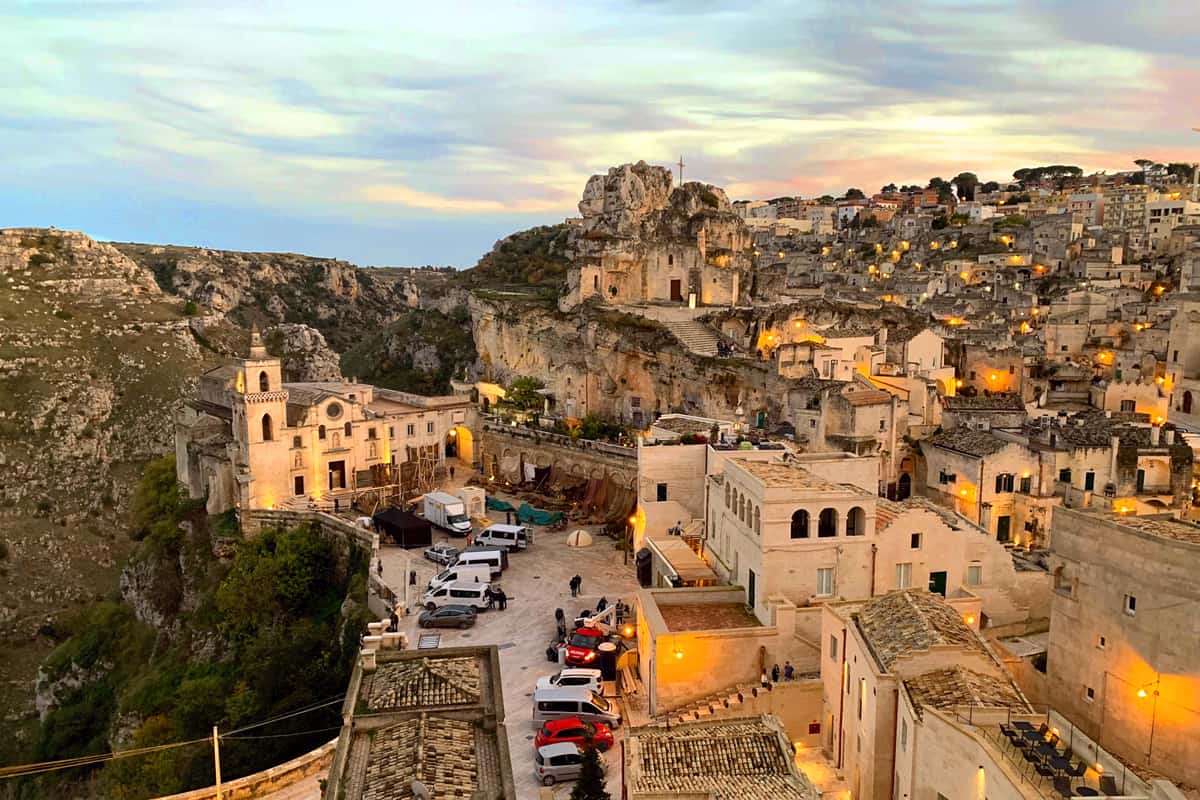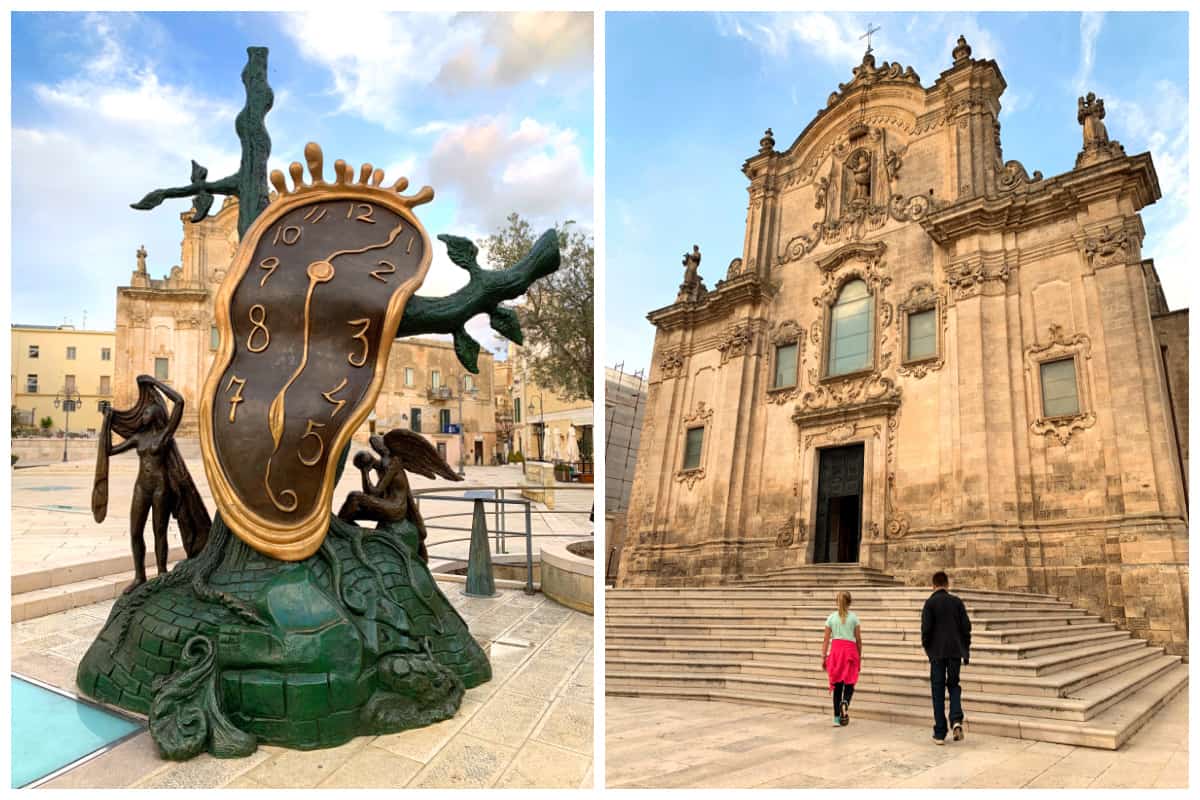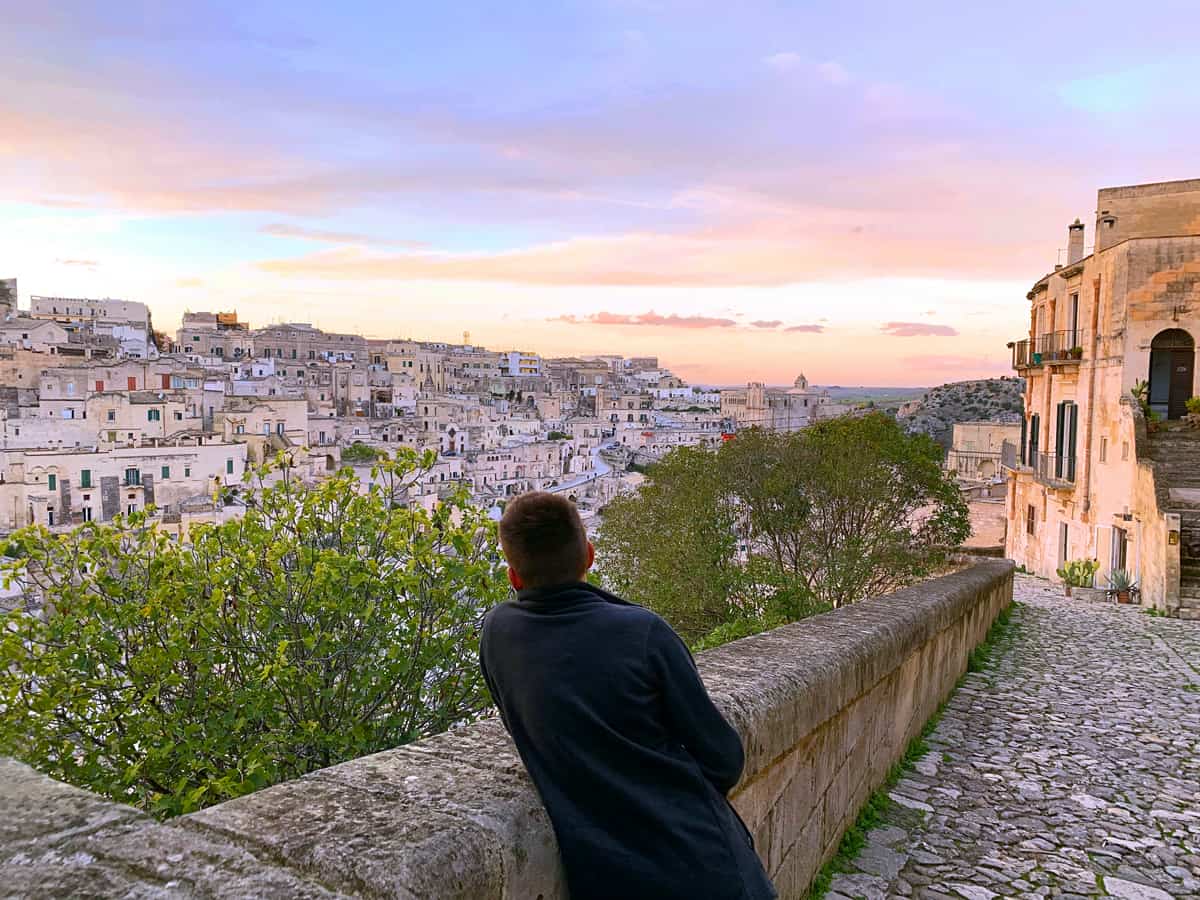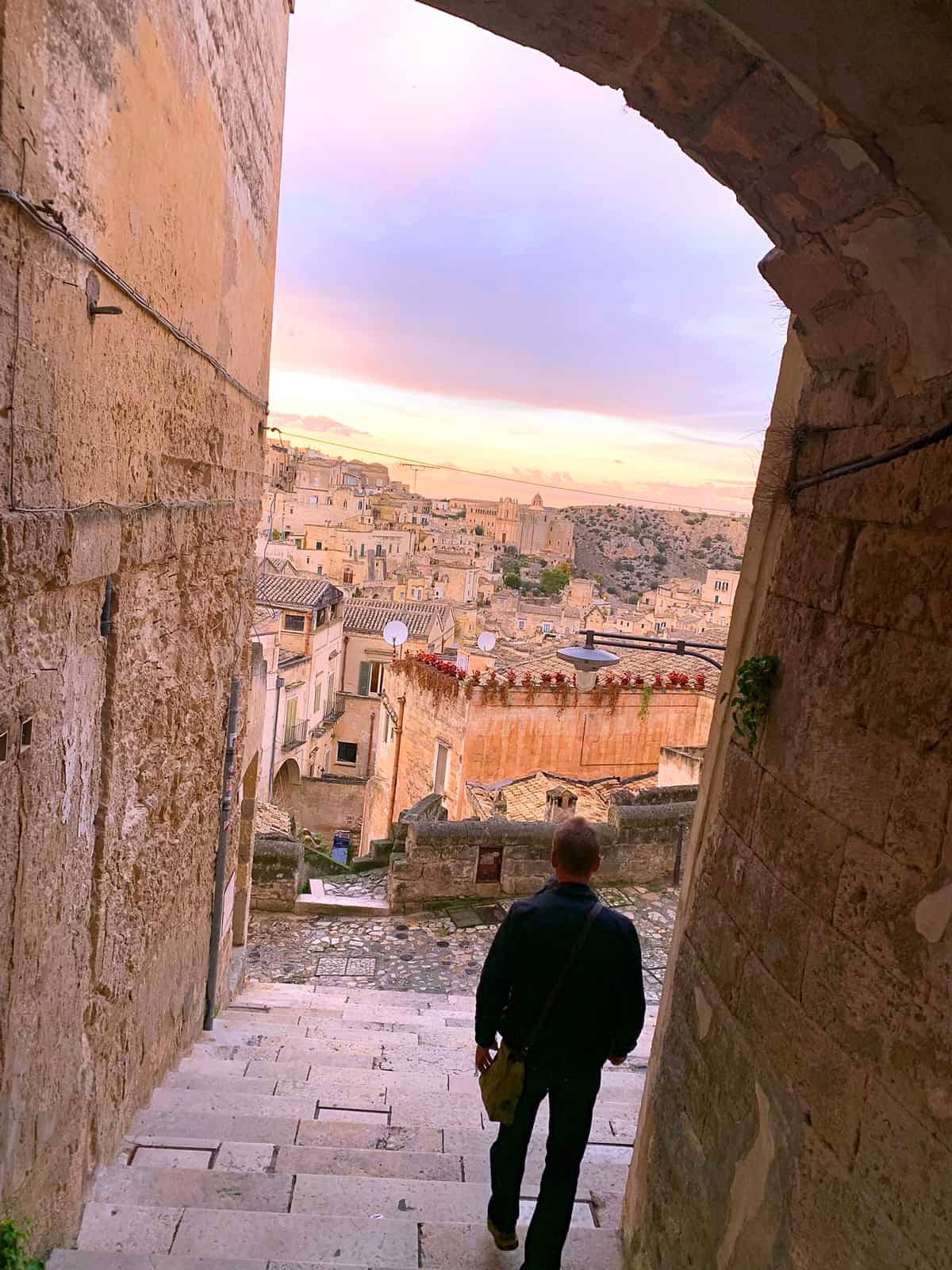Discovering Matera, Italy’s Timeless City Carved in Stone
This post may contain affiliate links. See my disclosure policy.
Italy’s oldest city surrounded by a vast, isolated landscape, Matera is a profoundly unique experience with its blend of ancient history, culture and breathtaking scenery. Carving their homes, churches, and businesses into caves of limestone, people have lived here for over 10,000 years, making Matera the third oldest continually inhabited city in the world. Now a UNESCO World Heritage Site but still untouched by mass tourism, Matera offers visitors a truly authentic Italian experience. Our recent visit took our breath away and we can’t wait to return again to explore this enchanting city.
On our most recent trip to Italy we ventured off the beaten path to visit some of Italy’s more “hidden” gems. One of those destinations: Matera. This city was the setting for scenes from Mel Gibson’s “Passion of Christ” as well as some of the opening scenes from the Bond film, “No Time To Die”. Beyond that we really had no idea what to expect. But as soon as we drove into Matera, it felt like we had entered an entirely different world. And as the day progressed to dusk and the setting sun bathed the buildings in an orange glow, we were left spellbound.
Nestled in the Basilicata region of southern Italy is Matera, an ancient city on top of a hill overlooking a vast rugged, isolated landscape. Most people have never heard of it, yet it stands apart as the oldest city in Italy and the third oldest continually inhabited city in the world. It is a UNESCO World Heritage site that has been garnering international acclaim, yet still virtually unknown to tourists at large. A city once proclaimed as “a national disgrace” by prime minister Alcide De Gasperi because of its extreme poverty and deplorable conditions, it has since undergone a revolutionary transformation.
The Sassi di Matera
Walking through Matera is like stepping back into a living museum. This city boasts a unique history etched not just in dusty pages, but in the very stones that form its foundation. Matera’s most striking feature is undoubtedly the Sassi, a complex network of ancient cave dwellings carved into the limestone cliffs and described by Fodor’s as “one of the most unique landscapes in Europe”. These are no ordinary caves, but rather intricate homes, churches, and workshops inhabited for millennia, their unique construction earning Matera its nickname, “the city of stones.” Evidence suggests humans have called these caves home since the Paleolithic era, stretching as far back as 10,000 years.
From prehistoric troglodytes to Byzantine monks who decorated the caves with stunning frescoes, each era has left its mark. In the Middle Ages, the Sassi became a thriving center of trade and culture, with elaborate cave churches and houses being built. However, by the 20th century, poverty and squalid conditions among the 15,000 people still living in the caves forced the Italian government to intervene, initiating a major restoration project to address these issues, which included relocating most residents to modern housing, while also working to preserve the Sassi’s historical significance. The Sassi di Matera underwent significant revitalization and today the cave dwellings have been transformed into charming hotels, restaurants, and shops, creating a vibrant and dynamic neighborhood. In 1993, Matera was designated as a UNESCO World Heritage site.
Imagine walking through narrow alleyways carved into the rock, sunlight filtering through gaps in the stone ceiling, and ancient doorways leading to homes that whisper stories of generations past. The Sassi are not just a tourist attraction; they are a living, breathing testament to human resilience and ingenuity.
Matera Architecture and Landmarks
Matera is characterized by its stone-carved structures, narrow winding streets, and captivating cave dwellings. There are over 150 rock churches, the most prominent of which is the Church of Santa Maria De Idris which perches on top of the cliff in the middle of Sasso Caveoso.
We were there as a film crew was setting up for a shoot with props simulating an ancient street market.
The two main districts are Sasso Barisano and Sasso Caveoso, which showcase the architectural evolution of Matera over the centuries. The Casa Grotta di Vico Solitario for example offers visitors a glimpse into the daily life of Matera’s past residents. This restored cave dwelling provides an immersive experience, showcasing the modest living conditions and traditional furnishings of the time.
The Cathedral of Matera, dedicated to the Virgin Mary, stands as an architectural masterpiece. Built in a blend of Romanesque and Apulian-Romanesque styles, the cathedral’s facade boasts intricate carvings, while its interior features stunning frescoes and religious artifacts.
The Baroque-style Church of San Francesco d’Assisi (below right) which sits in San Francesco Square has undergone numerous transformations over the centuries with the original structure dating back to the 13th century.
A juxtaposition of contrasts, there are permanent Salvador Dali sculptures around town, like the clock sculpture below.
Matera Cultural Heritage and Cuisine
Beyond its architecture, the city achieved the European Capital of Culture designation in 2019 which spurred a variety of cultural events and festivals that have since attracted artists, musicians, and enthusiasts from around the world. You can explore the historic center, a maze of narrow streets lined with baroque churches and piazzas bustling with life, visit the National Archaeological Museum which is home to fascinating artifacts from Matera’s rich past, head to the colorful fruit and vegetable market in Piazza del Sedile, and explore the rich local cuisine.
Matera’s culinary scene is a delightful blend of traditional flavors and regional specialties. Local dishes feature fresh, local ingredients, with a focus on handmade pasta, locally sourced olive oil, and the prized peperoni cruschi peppers that only grow in Basilicata. Visitors can savor the authentic taste of Basilicata through dishes like orecchiette with broccoli rabe (orecchiette con cime di rapa), lamb stew (spezzatino di agnello), a traditional pasta dish of onion, tomato, red wine and bread called pasta mollicata, a stew of artichokes, pancetta and broad beans (Ciaudedda Lucania), the Basilicatan equivalent of focaccia made with bacon (strazzata), calzones stuffed with chard, mozzarrella, raisins and pine nuts (calzone di verdura), and the renowned Matera bread (Pane di Matera), a rustic bread using only durum wheat that has been a household staple in Matera for centuries.
Conclusion
Unlike Italy’s popular tourist destinations like Rome, Tuscany, Venice, and the Amalfi Coast, Matera is not overrun by crowds. There are logistical reasons for this, one being its remote location (for reference, it’s a solid 5 hour drive from Rome). The other reason is its limited infrastructure, though that has been changing. Until recently, Matera lacked sufficient tourism infrastructure like hotels, restaurants, and tour operators catering to international travelers. However in the last several years expansion of the local airport and better connections to regional train lines have made Matera more accessible to travelers and also increased investment has led to the construction of new hotels, restaurants, museums and cultural centers, walking and cycling paths, all in an effort to provide comfortable and immersive experiences for visitors.
But it’s precisely Matera’s lack of crowds that we appreciated. This ancient city offers a refreshing alternative to the typical Italian tourist experience, with its blend of history, culture, and breathtaking scenery. And the lack of mass tourism has thus far preserved its authenticity and allows visitors to experience a more genuine Italian atmosphere. For a truly authentic and culturally immersive experience that is unlike any other, Matera is a must. Whether exploring the winding streets of the Sassi or savoring the flavors of Basilicata, Matera promises an unforgettable journey through the heart of Italian history and its magic and charm will stay with you long after you leave.
There is a certain ethereal atmosphere surrounding Matera that leaves you feeling suspended in time. Standing up on the hill overlooking the city, I paused for a long while, inhaling and exhaling slowly, not wanting to move for fear of bursting that surreal moment. I was mesmerized by the thought of how much history I was looking at, standing on, breathing in. Of course there are older remnants of human civilization around the world, many of which we’ve been to. But very few have been continually inhabited for as long as Matera. And 10,000 years is a very long time. We will most certainly be going back.
Further reading:
How Matera Went From Ancient Civilization to Slum to a Hidden Gem
How to Spend a Weekend in Matera, Italy’s Rock-hewn City

